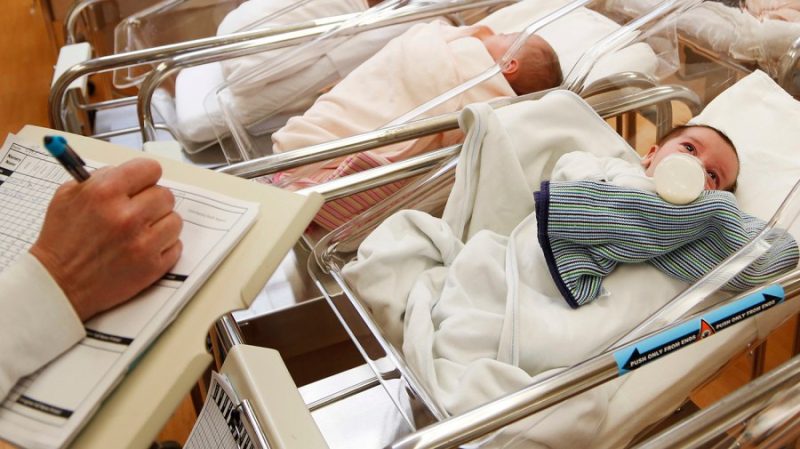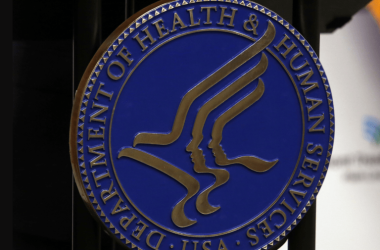(NewsNation) — President Trump appears to be backing reports of a floated $5,000 “baby bonus” for women who give birth to help reverse a decline in the U.S. birth rate.
What we know about the potential $5K baby bonus
When asked Tuesday in the Oval Office about the possibility of providing a financial reward to women who give birth, Trump responded, “Sounds like a good idea to me.”
The $5,000 “baby bonus” was first reported this week by the New York Times, which stated the White House has explored various ideas to encourage Americans to marry and have more children.
U.S. birth rate hit low in 2023, report shows
The birth rate hit a low in 2023, when just under 3.6 million babies were born in the United States. That year’s total was about 76,000 less than 2022 and was the lowest one-year total since 1979, according to the Centers for Disease Control and Prevention.
The National Center for Health Statistics at the CDC shows that in 2023 there were only 54.5 births for every 1,000 females between the ages of 15 and 22 — 3 percent lower than the birth rate in 2022.
The same report says birth rates among women ages 30-34 was higher than those ages 25-29 for the eighth consecutive years but down compared to 2022. The rate of births among women ages 40-44 was also down slightly compared to 2022 but the CDC says it has generally been rising since 1985.
The pandemic brought a slight uptick in the birth rate, but it has again dropped.
$5K ‘baby bonus’: Is it offensive?
Art Caplan, a professor of medical ethics at the New York University School of Medicine, told NewsNation’s “CUOMO” he is against a financial reward being paid to women for giving birth.
“If you’re really interested in babies, there are plenty of immigrants here whose kids are being deported,” Caplan said. “If you’re interested in babies, there are plenty of people who would come here and become citizens and bring their babies.”
Caplan argued that what the Trump administration wants is the “right kind of babies.” He called the notion “morally offensive.”
Rina Shah, a conservative strategist and commentator, disagreed. Shah told “CUOMO” that the Trump administration is attempting to be proactive in acknowledging financial realities facing the country.
“They see a declining birth rate, and they’re thinking to themselves, ‘How do we make America great again? We have more children to show how great America could be,’” she said.
However, Shah said a one-time financial incentive may not be enough to sway families, given the costs of child care, housing and education, all of which outweigh the incentive of a $5,000 bonus.
Still, Shah sees the positives in ideas like the baby bonus.
“I like it,” she told “CUOMO.” “I know on its face, it sounds offensive, but I think the intent is good.”
Analysis: Baby-related expenses may cost $20K in first year alone
A recent report by BabyCenter, a digital parenting resource company that helps support expecting and new parents, found that baby-related expenses now cost parents more than $20,000 in the first year alone, and that doesn’t include birth.
BabyCenter estimates parents will spend about $68 on clothes, $86 on diapers and wipes, and $222 on formula — each month. Multiply that by 12, and parents are looking at spending about $4,500 in the first year on these items.
In a recent survey, BabyCenter found a third of parents’ total household income goes toward baby-related costs.
“The best thing parents can do is budget,” BabyCenter executive editor Melissa Bykofsky told NewsNation. “If they are starting to think about growing their family, they have a lot more time to crunch the numbers and start putting money aside.”
Is the White House considering other possible incentives?
In addition to the bonus, other ideas in the report included reserving 30% of Fulbright scholarships for applicants who are married and have children, and government-funded programs that educate women about their menstrual cycles.
The Times also reported a proposal for a “National Medal of Motherhood,” which would be awarded to women with six or more children.
The White House has not said if any of the proposals will be put in place.
During the pandemic, former President Biden raised the child tax credit, but it was only for one year, and Congress did not renew it.
Trump also doubled the child tax credit during his first term, from $1,000 to $2,000, and raised the income cap. This will expire at the end of 2025, unless Congress renews it.
NewsNation’s Ashley N. Soriano contributed to this report.





